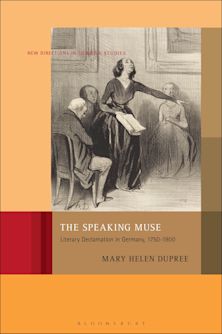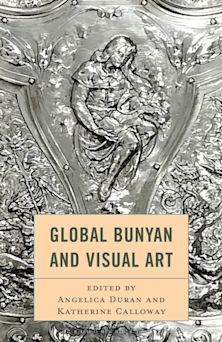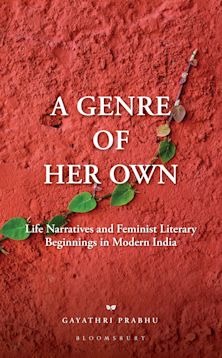Understanding Lacan, Understanding Modernism
Understanding Lacan, Understanding Modernism
This product is usually dispatched within 1 week
- Delivery and returns info
-
Free CA delivery on orders $40 or over
Description
Presents the most wide-ranging and in-depth exploration of the influence of modernist art and literature on Jacques Lacan, emphasizing the valences of Lacanian psychoanalysis for interpretations of modernism.
A notorious presence in French intellectual circles throughout the 20th century, Lacan was personal friends with modernists such as André Breton and Salvador Dalí, and in 1923 was present at the legendary reading of Ulysses at the Shakespeare and Company bookshop by James Joyce, to whom Lacan would devote a year of his seminar in 1975-76. Lacan also contributed to several Surrealist publications, including the famous magazine Minotaure, the inaugural edition of which featured special mention of Lacan's early work on psychosis. However, despite his affinity with early 20th-century modernism, Lacan's name is still more routinely associated with the category of so-called "postmodernism," thus rendering the question of style and periodization somewhat out of focus.
Understanding Lacan, Understanding Modernism asks and responds to a series of questions, including: Is Lacan a modernist or a postmodernist, and what is the difference? How significant was the influence of modernist literature and art on the development of Lacan's ideas? How does our understanding of modernism change when viewed through a Lacanian lens?
The final section identifies key Lacaninan concepts, offering context and a discussion of their usage and relevance in current thought.
Table of Contents
Thomas Waller, University College Dublin, Ireland, and Sinan Richards, University College Cork, Ireland
Part I. Conceptualizing Lacan
1. Lacan: Avant-garde psychiatrist
Derek Hook, Duquesne University, USA, and Stijn Vanheule, Ghent University, Belgium
2. Lacan's "New Relay": Salvador Dalí and René Crevel
Sinan Richards, University College Cork, Ireland
3. Modernity and the Impotence of Discourse
Nadia Bou Ali, American University in Beirut, Lebanon
4. Subjective Destitution as Gift
Elizabeth Stewart, Yeshiva University, USA
5. Psychoanalysis in Search of Itself: Jacques Lacan, T.S. Eliot, and the Seductions of Modernism
Mario Beira, Independent Scholar, and Dany Nobus, Brunel University London, UK
6. From Irma to Joyce to Beckett: On Lacan's Crisis of Representation
Will Greenshields, Zhejiang University, China
7. Lituraterre: How Lacan Literalizes Literature
Jean-Michel Rabaté, University of Pennsylvania, USA
Part II. Lacan and Aesthetics
8. Navel-Gazing: Mário de Sá-Carneiro and Confessional Desire
Thomas Waller, University College Dublin, Ireland
9. Thinking Again about the End: Kafka, Lacan, and Benjamin
Ben Ware, King's College London, UK
10. Bachmann's Malaise and the Language of Hysteria
Jamieson Webster, The New School for Social Research, USA, and Marcus Coelen, ICI Berlin, Germany
11. Ret-Con Jouissance: Salman Rushdie and Postcolonial Modernism
Clint Burnham, Simon Frasier University, Canada
12. The Tripwire of Modernism: Hunger as Function and Ornament
Simon Hajdini, University of Ljubljana, Slovenia
13. Fixing Repetition: Lacan, Beckett, and the Exhaustive Obsession of Counting
Arka Chattopadhyay, IIT Gandhinagar, India
14. Queer Company: Henry James and Ghosts
Luke Thurston, Aberystwyth University, UK
Part III. Glossary
15. Cut
Thomas Waller, University College Dublin, Ireland
16. Ethics
Thomas Waller, University College Dublin, Ireland
17. Fantasy
Calum Neill, Edinburgh Napier University, Scotland
18. Gaze
Thomas Waller, University College Dublin, Ireland
19. Letter
Thomas Waller, University College Dublin, Ireland
20. Object a
Nicholas Stock, University of Birmingham, UK
21. Psychosis
Stijn Vanheule, Ghent University, Belgium
22. R. S. I.
Jean-Michel Rabaté, University of Pennsylvania, USA
23. Sexuation
Thomas Waller, University College Dublin, Ireland
Notes on Contributors
Index
Product details

| Published | Oct 02 2025 |
|---|---|
| Format | Hardback |
| Edition | 1st |
| Extent | 288 |
| ISBN | 9798765114896 |
| Imprint | Bloomsbury Academic |
| Dimensions | 229 x 152 mm |
| Series | Understanding Philosophy, Understanding Modernism |
| Publisher | Bloomsbury Publishing |
Reviews

ONLINE RESOURCES
Bloomsbury Collections
This book is available on Bloomsbury Collections where your library has access.
































